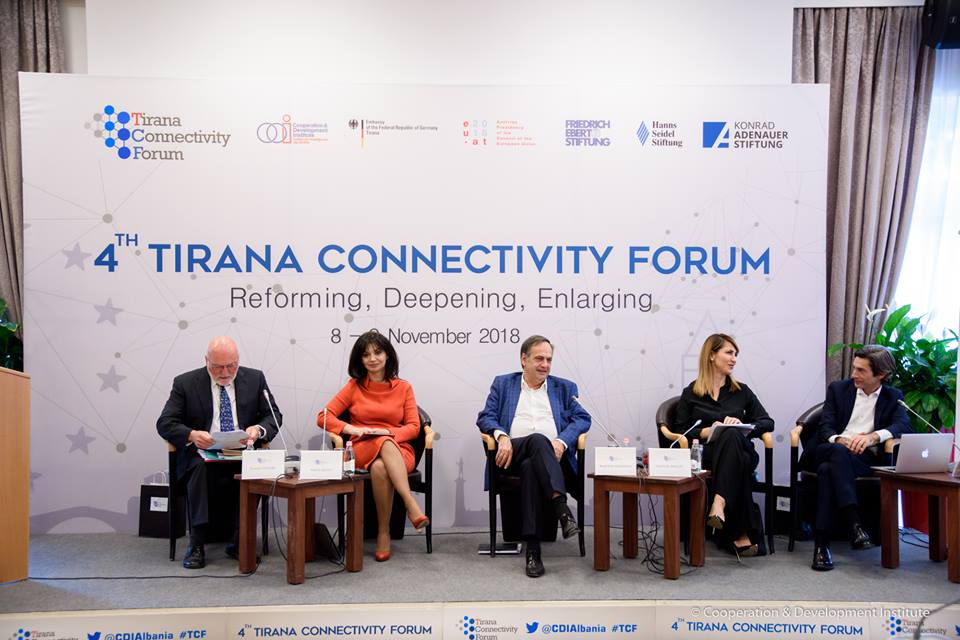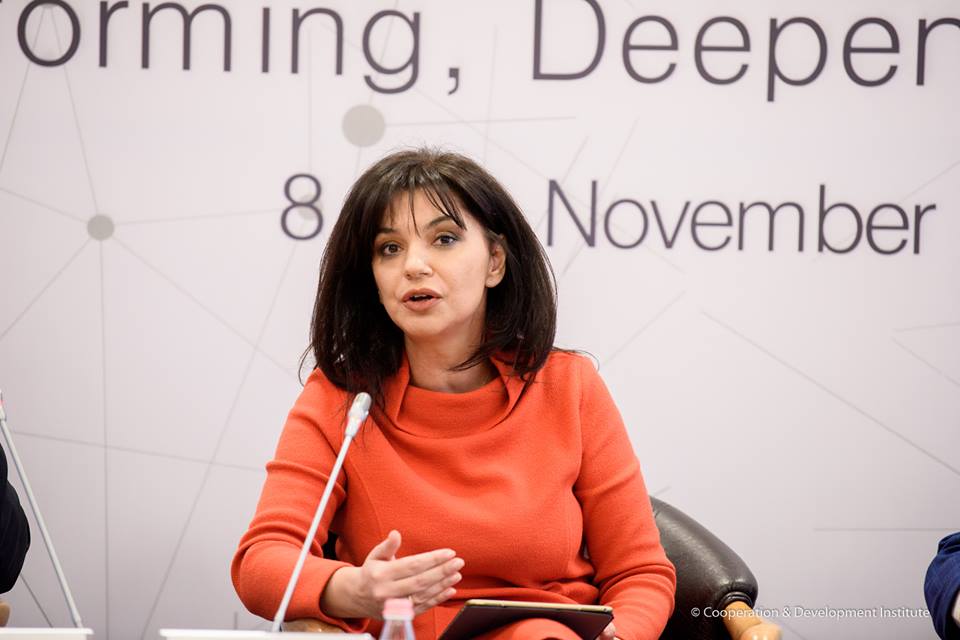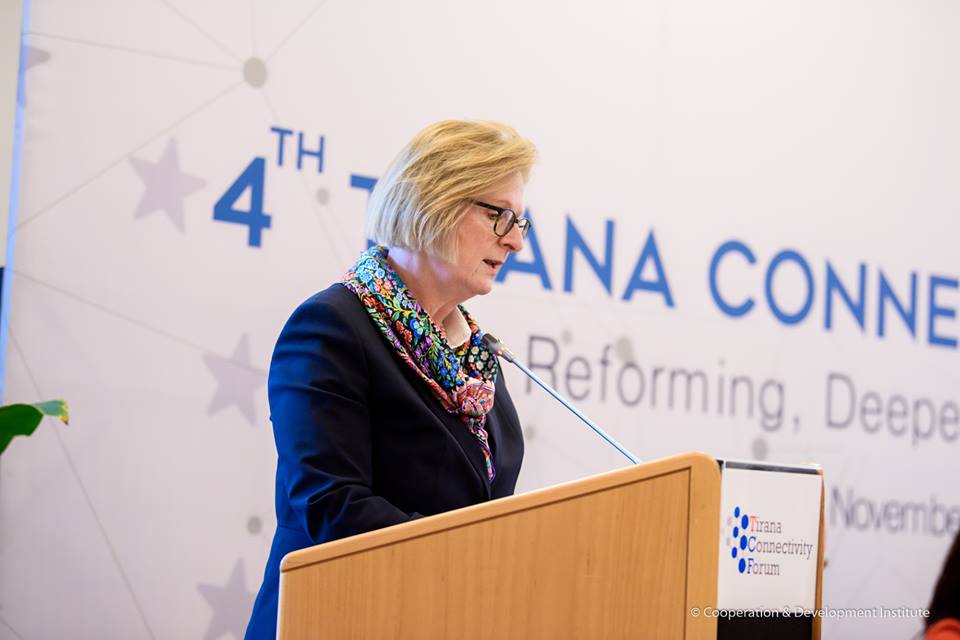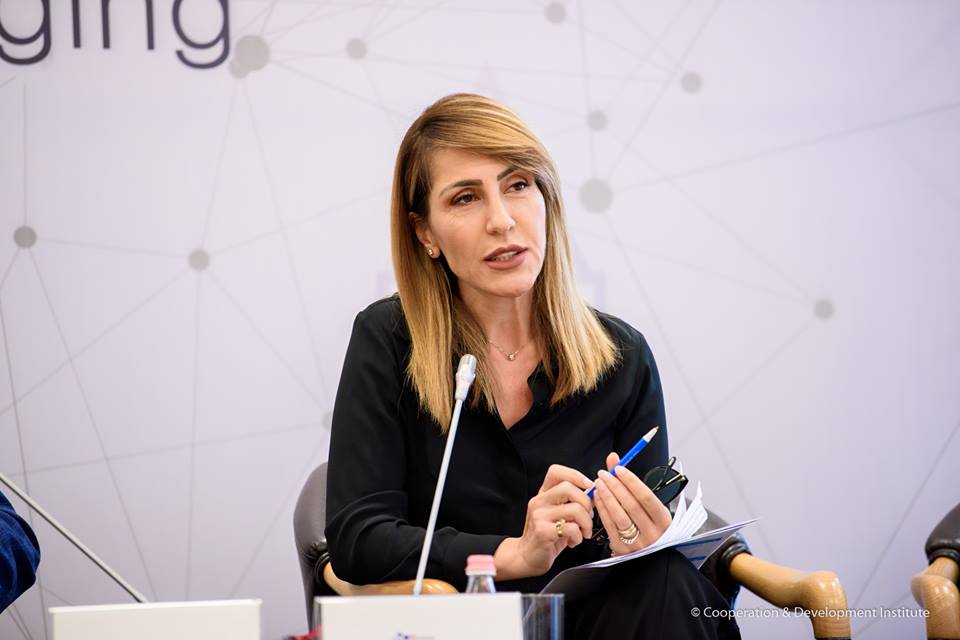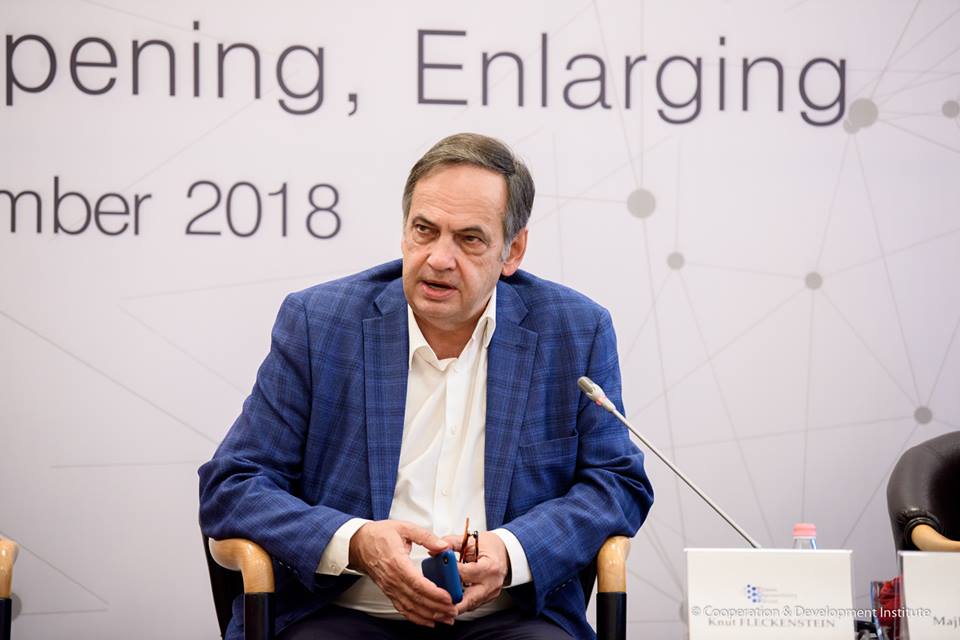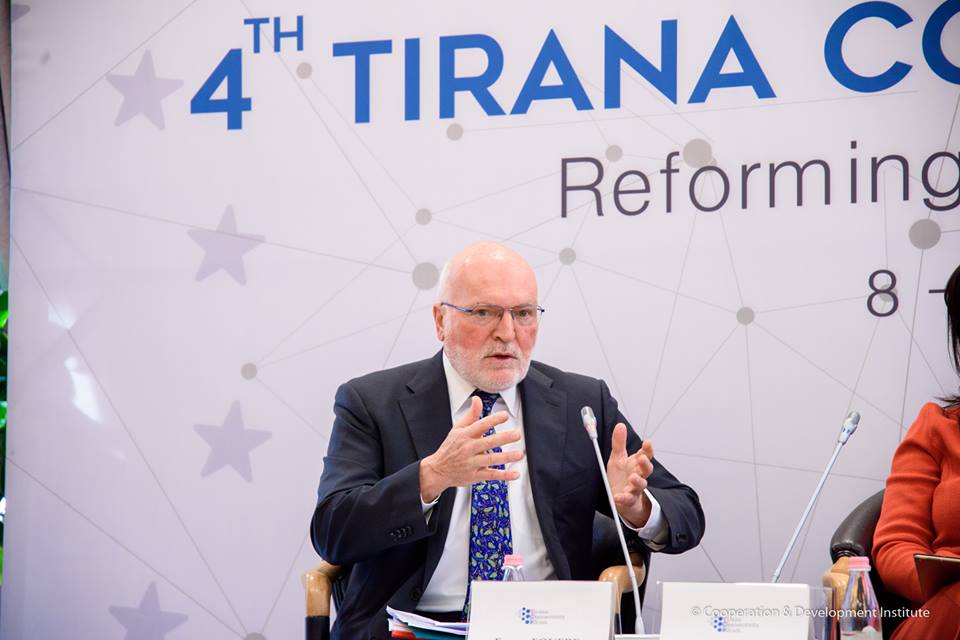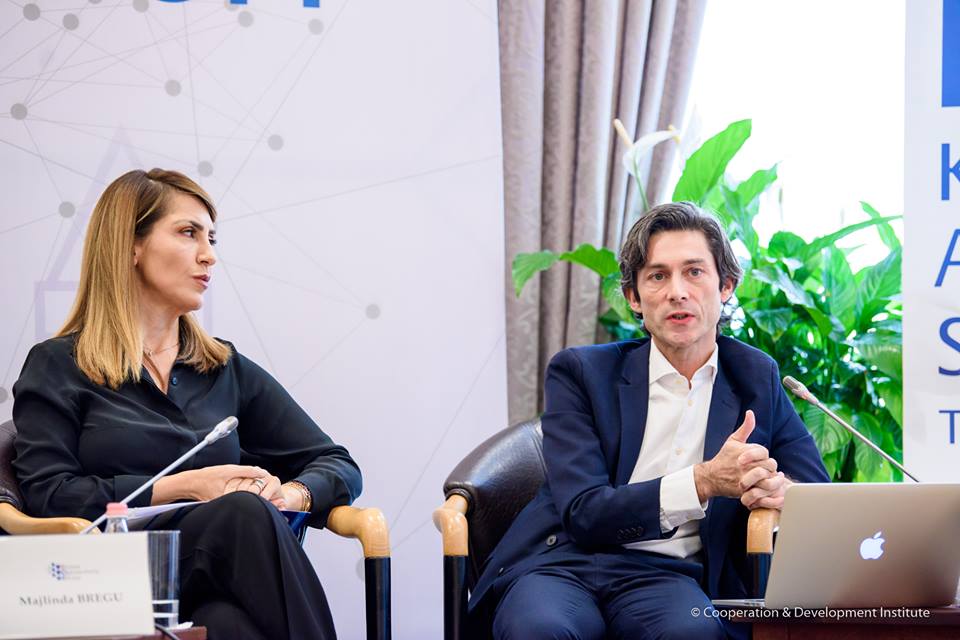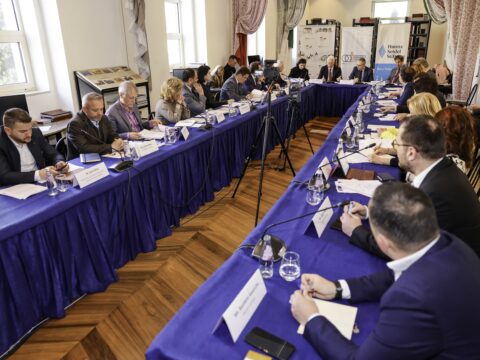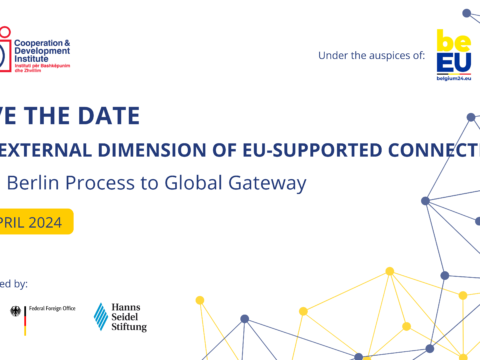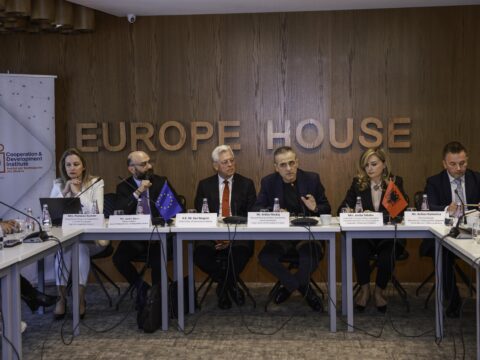The moderator of the panel, H. E. Erwan Fouere, Associate Senior Research Fellow at the Centre for European Policy Studies in Brussels, opened the panel by commenting on the context: we are entering a difficult phase in the EU’s re-engagement with the WB region, with increasingly skeptical voices on the future of the EU’s enlargement agenda. These are likely to increase during the forthcoming EP elections and could affect the hoped for outcomes for the June 2019 European Council, particularly as regards Macedonia and Albania”, he said. But “We can deepen the Integration process in the European Union and we can also enlarge to include other countries to extend the frontiers of peace and security to include the countries of Western Balkans”, continued Mr. Fouere.
E. Susanne Schutz, the Ambassador of the Federal Republic of Germany in Albania, opened the discussion by saying that “The Berlin Process has brought together the WB6 on many different issues and has facilitated a dialogue which four years ago seemed difficult. This is also why this process will continue beyond 2018 with Poland next July.” – she continued – “While the Berlin Process was never meant to an alternative or a substitute for the EU enlargement process, the Berlin Process brought this region back to the attention of the EU members states confirmed the EU membership perspective and this helped accelerate the integration of this region.”
Mr. Knut Fleckenstein, Member of European Parliament, stated that the 2019 European elections will not change the parliamentary majority in favor of accession process. But Western Balkans countries, and especially… “Albania and Macedonia have to seriously continue with the Vetting process, with the fight against organized crime and corruption and to not stop it and wait for the decision in Brussels. I think this is the most important thing from this side and the Council now has to go a step further and if they want to be reliable in the future, they should to that”. Commenting on the necessity to increase institutional cooperation in all levels, Mr. Fleckenstein informed that the Group of Progressive Alliance of Socialists& Democrats is willing to invite the sister parties from the WB6 as observers in Group Meetings after the 2019 European elections. Also another innovative form of institutionalized cooperation between EU and WB6 institutions that he has been exploring is in the framework of the activities of the Committee of the Regions
The Albanian Minister of State for Protection of Entrepreneurship, Mrs. Sonila Qato stated that the three key priorities of the government regarding the economy are boosting employability, increasing investments and improving the quality of public services. “We are trying to orient the youth towards the sectors which the government has identified as strategic such as tourism, energy and high added value agriculture. IN this context, the Minister underlined the importance of the “…Justice reform in Albania as a crucial endeavor that is addressing the needs of citizen and private sector for efficient institutions and functioning rule of law”. To get through teh bottlenecks emerging in reform implementation, Ms. Qato stressed the importance of institutional cooperation in WB6: “NICs should better coordinate and work together in planning, financing and operation LIPs”, as well as policy coordination between EU and WB6. “EU needs to include WB6 when planning its economic and social policies”, ended her intervention the Minister.
Mrs. Majlinda Bregu, Secretary General-elect of the Regional Cooperation Council, started by saying that “To make the region a strong geopolitical actor, all agree that the region needs economic development, which needs more budget for the projects to be supported.” “But economic development needs two strong preconditions” she continued as “..There are two ways to make the region a better one: (1) We have to meet the EU conditions through a right political engagement in implementing the reforms, not only by writing them in papers but also seeing them through on the ground; and (2) EU has to show concrete commitment in the region.”MrsBregu continued on the importance of people-to-people connectivity, and the need to focus on the skills that are in required in the WB6.
Prof. Christophe Hillion, EU Professor at Europa Institute University of Leiden, explained the three main current developments of European Union: (1) An increase volatile neighborhood of the EU combined with changing attitudes of regional and global players which can potentially affect security cooperation in the region and in Europe; (2) In the same time of the Berlin Process, we have the Brexit process, which also affects the EU enlargement and deepening; and (3) Rule of law crisis translated by the backsliding of the several member states from the fundamental principles on EU legal order while they are enjoying the benefits of EU memberships. Prof. Hillion then delved into the concept of “positive differentiation” as a way to make enlargement more palatable to hesitant member states. This involves, an increased requirements from CC for loyalty and especially “tangible proof” as “EU is susceptible to become even more scrupulous in the core principles (Art. 2) or in the alignment in foreign policy”. Regarding the problems with coherence and credibility, EU has to have its house in order to be able to give substance to Enlargement. “The third problem is inclusiveness of Candidate Countries(CC) in the EU policy debates. Inclusiveness of CC today conditions a functional MS tomorrow, and is crucial in building trust. Sectors such as migration, security, crime, etc can be used to extend the meetings of EU council in the same style as European Conferences”.



